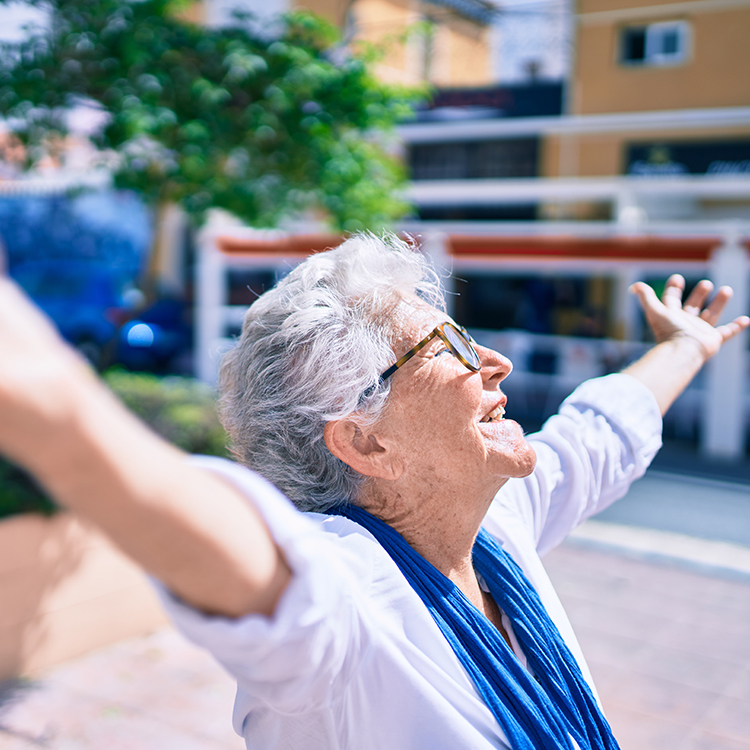Cantoria Activa > Active Health Centre > Climatotherapy
Climatotherapy is a discipline that uses the climate of an area to help with the treatment of diseases or ailments.
Climatherapy
Climatotherapy is about adapting to the elements that define the climate of a place, such as temperature, humidity, atmospheric pressure, precipitation, wind, solar radiation or even electrical loads, together with other variables such as geographical location, altitude or proximity to the sea, to help to cure the ailments of a patient by exposing him to the most appropriate climatic conditions in each case.
The influence of the environment
There is currently no doubt about the influence of the environment on people. Doctors know how the climate can exert calming or invigorating, stimulating or depressing effects. This characteristic is very effective in chronic ailments, climatotherapy offers relief, there are some types of diseases for which the climate can be decisive in their cure. Thus, we distinguish dry climates from humid ones and, on the other hand, mountain climates with respect to low-altitude and maritime ones. The combination of all types of climate offers us many variations that are beneficial for each case.
Climatic factor
Thus, we distinguish dry climates from humid ones and, on the other hand, mountain climates with respect to low-altitude and maritime ones. The combination of all types of climate offers us many variations that are beneficial for each case.
Climatology with increased sunlight: Also known as phototherapy, climatology that focuses on the healing powers of sunlight can provide benefits for many health problems and improves general well-being.
Phototherapy or Light Therapy, a natural antidepressant.
As living beings, we feed and breathe thanks to plants and the energy transformations that occur in nature. This source of energy comes from the sun, without which life on the planet would be impossible. That is why most of the ancient civilizations, especially those that based their livelihood on agriculture, venerated the star. Despite the fact that technological advances have allowed us to overcome many limitations (distance communication, means of transport, etc.), at the base of all this we continue to depend on nature and ultimately on the energy that the sun produces.
The importance of the sun
The sun facilitates the production of certain functions and provides benefits to our health. We must not forget the importance that sunlight has on our body. An example of this would be the increase in the synthesis of vitamin D thanks to sun exposure, whose effects translate into an improvement in mood and a relaxing effect. Solar energy is also involved in strengthening the immune system, there are also studies that claim that it improves the performance of white blood cells. In addition, sunlight has been shown to influence our energy level, making us feel more active and dynamic with the increased release of hormones such as Serotonin.

"Cantoría, due to its geographical location, altitude and distance from the sea, meets a climatic condition that benefits the state of health in general."
Lack of vitamin D
There is currently no doubt about the influence of the environment on people. Doctors know how the climate can exert calming or invigorating, stimulating or depressing effects. This characteristic is very effective in chronic ailments, climatotherapy offers relief, there are some types of diseases for which the climate can be decisive in their cure. Thus, we distinguish dry climates from humid ones and, on the other hand, mountain climates with respect to low-altitude and maritime ones. The combination of all types of climate offers us many variations that are beneficial for each case.
Phototherapy or light therapy
An alternative to synthetic vitamin D is PHOTOTHERAPY OR LIGHT THERAPY, a technique that is based on exposing the patient to intense light for short periods of time and under certain security measures. It is a therapy that is easy to administer, low cost and without side effects. Its administration requires the patient to remain in front of a light source with their eyes closed for a period of between 15 minutes and two hours. It is recommended once a day and preferably first thing in the morning.
A natural antidepressant
At the first symptoms of a depressive mood, health professionals recommend exposing yourself to the sun for a few hours or simply doing more outdoor activities, and thereby improve both physical and mental health, which favours psychological well-being. In fact, in the Nordic countries, where the hours of sunlight are fewer, light therapy or light therapy is recommended for regular use at home as a preventive tool for psychophysical discomfort and is considered a first-choice therapeutic alternative in seasonal rhythm mild depressive disorders.



